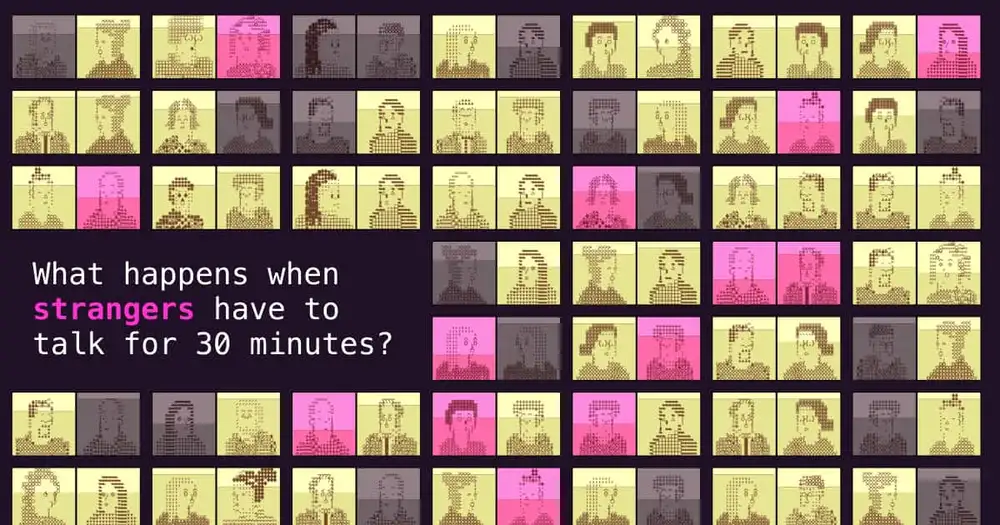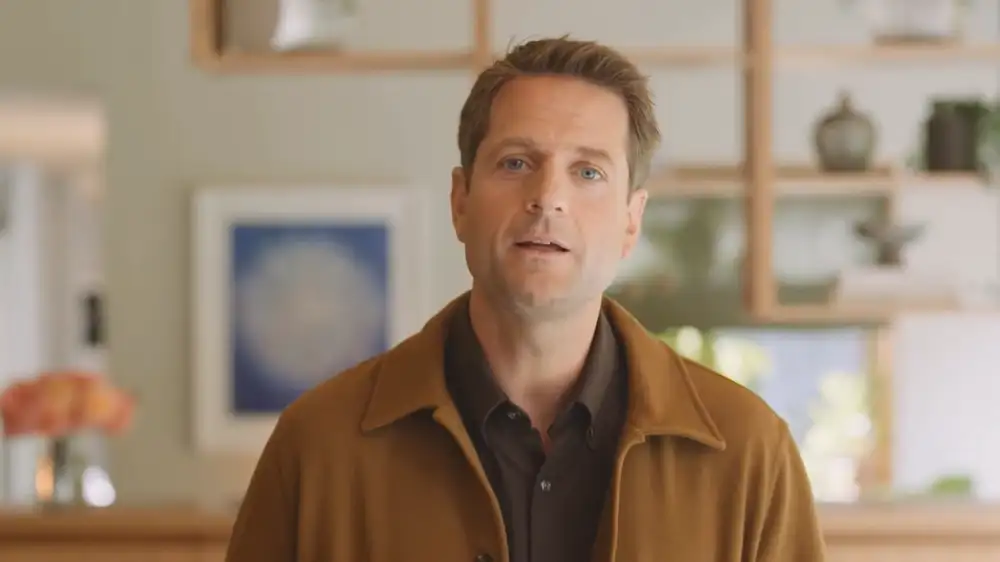We’ve gotten quite good at being with people who are similar to us. We often live near people of the same race and class. The education system funnels us into the same schools and similar jobs. Online algorithms group us with like-minded people. These relationships are called “bonding” social capital—a term popularized by Robert Putnam in his landmark 2000 book, Bowling Alone.
But Putnam also pointed out that what we’re missing is “bridging” social capital—relationships with people unlike us. Most of our friends are of the same race and class as we are. We have the same political views as most of our friends. And the number of people who say they trust others has been decreasing for generations:
Americans who say most people can be trusted
Source: General Social Survey 1972-2018; Pew Research Center 2024That might contribute to why we really don’t want to talk to strangers.
In 2014 study, researchers conducted a series of experiments on Illinois trains and buses.
Some commuters were told to keep to themselves during their trip; these participants predicted the isolation would give them a positive experience.
Other commuters were told to talk to strangers; these participants predicted they would have a negative experience. They assumed strangers wouldn’t want to talk to them, that strangers wouldn’t like them, and that they would have trouble maintaining a conversation.
After all, what if the person you approach gets angry? What if they accuse you of harassing them? What if they just think you’re weird?
In the 2014 study on Illinois trains and buses, researchers followed up with people who were asked to talk to strangers—the people who predicted they wouldn’t enjoy the experience. What these participants reported back was almost no rejections, pleasant conversations, and an overall positive experience.
This phenomenon has been replicated in several experiments. Whether it’s interacting with strangers in a scavenger hunt, meeting new people in a college dorm, or chatting up a barista, researchers have repeatedly found that people don’t think they’ll enjoy interacting with strangers.
But after the interaction, participants tend to say it was a positive experience.
Early in the pandemic, the activity people missed most were things like going to restaurants, the gym, church, and the barbershop—places where we’re around strangers and acquaintances, or “weak ties.” We normally have between 11 and 16 interactions with weak ties each day, but devoid of these spontaneous opportunities, only 15% of Americans said they made a new acquaintance during the pandemic.
A few months ago, I was taking the subway to work when a 16-year-old boy slipped on the subway platform and hit his chin on the ground. He stumbled onto the train and stood next to me. I kept my earbuds in and tried to convince myself this wasn’t my problem. Then out of the corner of my eye I saw that he’d split open his chin; blood and tears were gushing down his face. I looked around the train for someone else to help—maybe someone who works with kids. No one even looked up. So I grabbed some tissues from my backpack, turned to him, and told him to hold it against his chin. He was in shock. I tried to calm him down and told him to go to the nurse’s office when he got to school.
All I could think was: What if that was me? Who would help me? Would everyone stand around like they’re doing now?
But when I ran out of tissues to stop this kid’s bleeding, people on the train noticed and handed me disinfectant wipes, paper towels, and bandages. We were able to stop the bleeding. When I got off the train, another stranger got up and stood by his side.
When we’re wounded, we don’t trust the people around us. We shelter away because we think it’s the only way to be safe. We let strangers suffer because, in this emotional state, everyone is a threat. That means it’s hard to work with others to build the world we want. We’re left to hunker down for the inevitable dystopia that is to come.
But I don’t want to live in that world. I want to feel safe. I want to help others to feel safe. And I want people to do the same for me—regardless of whether I’m a stranger or not.

 Nintendo Switch 2 ソフト『スプラトゥーン レイダース』が開発中。『スプラトゥーン3』の無料アップデートも本日配信。
Nintendo Switch 2 ソフト『スプラトゥーン レイダース』が開発中。『スプラトゥーン3』の無料アップデートも本日配信。